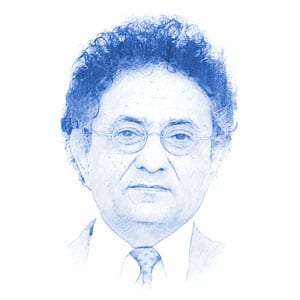There is no Palestinian people, said MK Anat Berko, creating a minor uproar. The late Golda Meir said the same thing before her. In fact, this has been an oft-repeated argument in recent decades. Former MK Azmi Bishara told Yaron London in an interview: “I do not think that there is a Palestinian people. There is an Arab nation. The Palestinian nation is a colonial invention. When did the Palestinians exist?”
Historically, Berko is correct. There was no Palestinian people. The name “Palestina” with a P was bestowed by Roman conquerors. It was named after the Philistines, who were not even Semitic, to annoy the Jews. The name was adopted later by the Christians, but not by the Jews. With the Muslim conquest, the “Jund Filastin” district was established, with Ramle being the district capital, not Jerusalem. Starting in the 11th century, this was no longer the case, either.
The name “Filistin” or” Filastin” was thrown around on occasion, but it did not connote a national identity. The whole area was considered part of A-Sham, or Greater Syria. In 1911, two Christian family members created the newspaper “Filistin,” which supported the annexation of the area into Greater Syria.
In Mandatory Palestine, only Jewish institutions used the term Palestine-E.I. The Anglo-Palestine Bank became Bank Leumi and the Palestine postal service became the Israeli postal service. In contrast, the Arabs did not call themselves Palestinians during the Mandate, and no Arab Institution called itself Palestinian. The outstanding representatives were called the Arab Higher Committee rather than the Palestinian Higher Committee. At the head of the struggle against Zionism were Arabs, not necessarily from Mandatory Palestine. The identity that developed, insofar that it did develop, was an Arab one.
The mufti felt like a regional leader, not a local leader. Fawzi Kaukji, who was prominent in the uprising against the British and against Israel, was actually born in Tripoli. Ahmad Shukeiri, the first PLO chairman, was born to a Lebanese family who immigrated to Mandatory Palestine and he even served as the Saudi ambassador to the United Nations. He and his friends fought against Zionism and for the liberation of Palestine, but even they did not define themselves as Palestinians.
This continued for decades after the establishment of Israel. From 1949 to 1967, there was no British or Israeli rule over the West Bank and Gaza Strip. In these two decades, not ancient history but utterly contemporary, a separate Palestinian identity was not created. The more established Palestinian institutions were sponsored by the Arab states, as part of the struggles among themselves.
Needless to say, a Palestinian state was not established. Why? There was no occupation. King Hussein of Jordan made it clear during those years that “Jordan is Palestine and Palestine is Jordan,” and that “Jordan in its two parts is the homeland of all the Palestinians.”
Actually, the Six Day War and the Israeli conquest were the biggest catalysts for the development of a separate Palestinian national identity. The fact that there was no Palestinian people in the past does not mean that there is no Palestinian people today. Indeed, it is not clear what the difference is between Jordanians, Palestinians and the Syrians themselves. They have same language, religion, culture, and often shared tribal or familial kinship. But identity is a flexible matter sometimes. In any case, it is self-defined.
Logic says there is no need for a separate Palestinian state. Jordan already exists. And the one-state solution is unworthy of Jews and Palestinians. It is worthy of both banks of the Jordan River, east and west. Palestinian leaders, even the last two decades, have made every effort to prevent the establishment of a Palestinian state. So Berko is right about the past. At present there is no need to deny Palestinian nationalism, because whoever denies it now will find themselves in a binational state in the future.
Reprinted with author’s permission from YNet News.com



